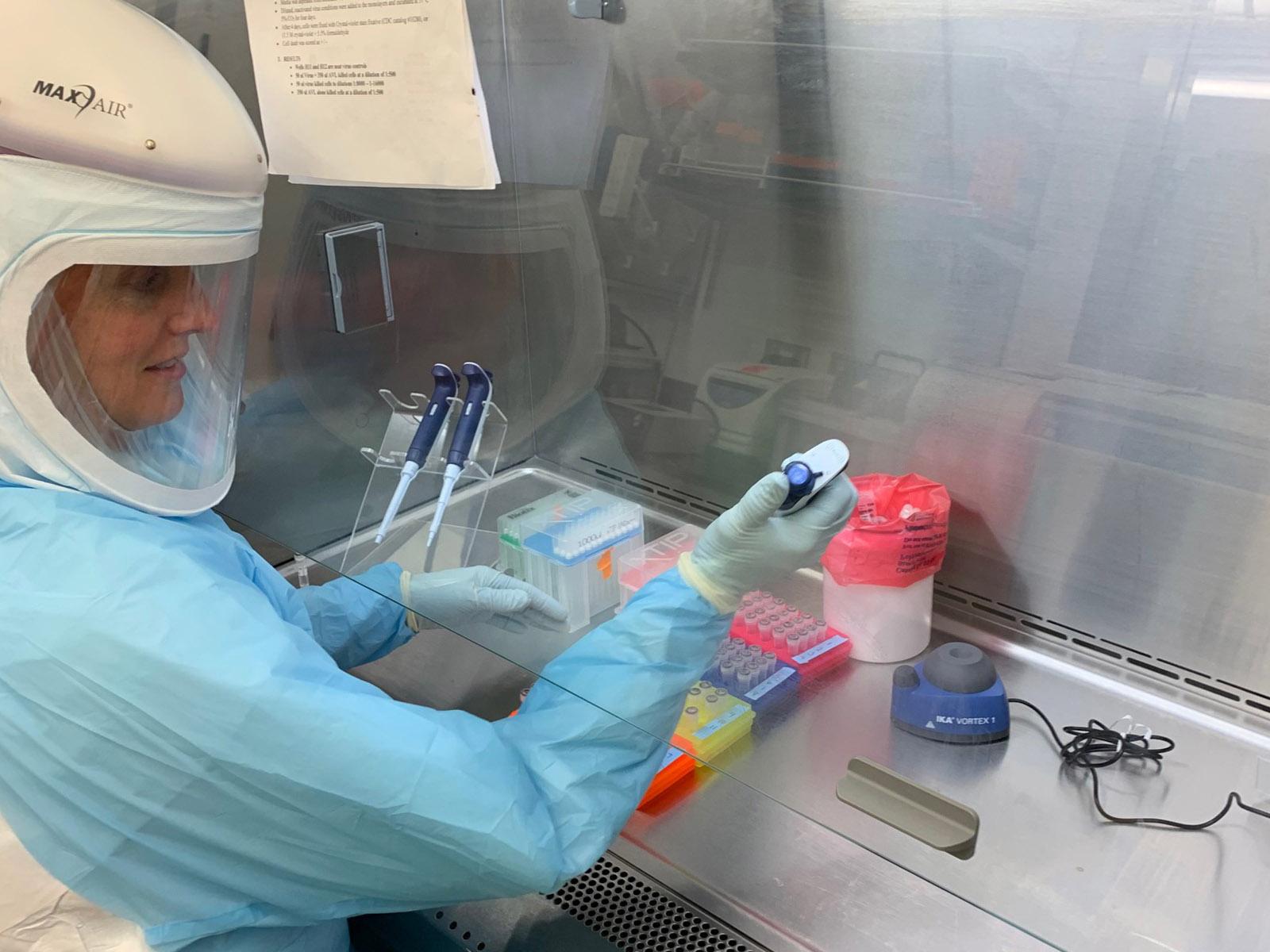Biosafety Level 3 Facility
WA
United States

PNNL studies inactivation of SARS-CoV-2, the causative agent of COVID-19, using BSL3 containment.
(Photo courtesy of Tony Han | University of Washington)
Through signature facilities, capabilities, and partnerships, PNNL scientists are dissecting biological processes to better understand common biological mechanisms that govern biological systems in both humans and the environment.
The Biosafety Level 3 (BSL3) facility is a controlled-access facility where PNNL researchers can safely study pathogens and toxins that need specialized containment.
Collocated with the University of Washington, the BSL3 facility provides safe and secure space for PNNL researchers studying:
- biothreat and pathogen detection, characterization, and assessment
- host-pathogen interactions
- microbial forensics.
Advancing Biological Threat Research
The BSL3 facility expands the range of microorganisms PNNL can work with to those that directly affect human health, including emerging, indigenous, or exotic diseases, and others that can cause serious or potentially lethal disease through inhalation.
Combined with core strengths in proteomics and biological threat signatures science, the BSL3 facility allows PNNL to address critical national security and human health needs in biodetection, bioforensics, early diagnostics, and medical countermeasures for biothreat agents.
Through the BSL3, PNNL provides critical biological research capabilities to the Department of Energy, the Department of Homeland Security, and other federal agencies.
BSL3 procedures, equipment, and facility safety standards follow the guidelines established by the Centers for Disease Control and Prevention, National Institutes of Health, and Department of Health and Human Services. To learn more, visit University of Washington website.